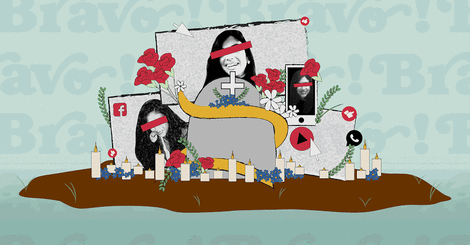Your podcast discovery platform
Curious minds select the most fascinating podcasts from around the world. Discover hand-piqd audio recommendations on your favorite topics.

piqer for: Global finds Technology and society
Prague-based media development worker from Poland with a journalistic background. Previously worked on digital issues in Brussels. Piqs about digital issues, digital rights, data protection, new trends in journalism and anything else that grabs my attention.
The Right To Be Forgotten: A Mother's Struggle To Erase Italy's Viral Sex Tape
In the spring of 2015, Tiziana Cantone sent a series of sex videos of herself to five people on WhatsApp. The explicit footage of the 30-year-old from Naples performing a sex act on a man quickly spread online, appearing on countless pornography websites and going viral on social media. The words she said to an unidentified partner – “You’re making a video? Bravo” – often presented alongside her full name, became a joke, the punchline of countless memes and even a slogan printed on T-shirts.
Faced with unrelenting ridicule and distraught at her unwanted notoriety, Tiziana quit her job, moved to another part of Italy, changed her name and started a legal battle to have the abusive material removed. But after winning a right-to-be-forgotten ruling, and then being ordered to pay huge legal costs, Tiziana committed suicide. A year and a half later, some of the explicit images still circulate online.
Apart from powerfully chronicling Tiziana’s online abuse and cyberbullying, the article shows that although the right to be forgotten is now enshrined in EU law, it is still extremely difficult to compel tech giants to fully erase the contested information. It tells the heartbreaking story of Maria Teresa Giglio, Tiziana's mother, who fights to have her daughter's sex tape forgotten. It describes how, frustrated with the passivity of tech companies, Maria relentlessly scours the Internet for any traces of her daughters' name, while pursuing legal action against Facebook Italy for its role in enabling the spreading of the videos.
"Maria’s continued battle brings Tiziana’s case into the grayest and most challenging forefront of the ongoing discussion about the right to be forgotten. Is it possible to demand that something’s erased from the internet when it has been reimagined, remixed, and flipped into memes across thousands of web pages? What’s the right course of action when the source of a family’s trauma becomes part of culture itself?," writes The Atlantic.
Stay up to date – with a newsletter from your channel on Technology and society.
